New documentary airing on NITV and SBS Viceland urges a rethink on the story of Captain Cook
Captain James Cook’s arrival in Australia in 1770 paved the way for dispossession and genocide, according to a new documentary which reframes his expedition through Aboriginal eyes.
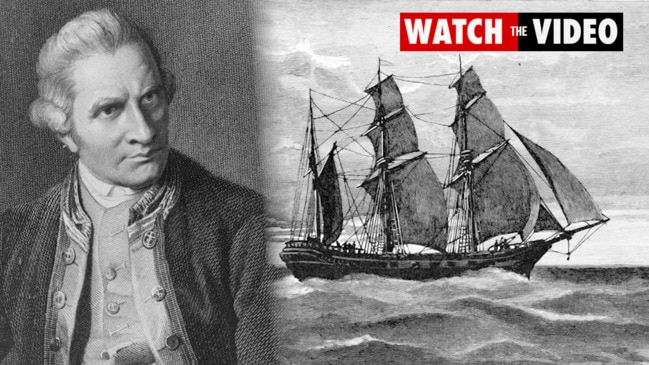
SA Weekend
Don't miss out on the headlines from SA Weekend. Followed categories will be added to My News.
When Daniel Rankine – better known as Trials – was a kid at Hackham South Primary he was taught what most young Australians are taught about Captain James Cook.
“Basically we were told that Cook was a hero,” the producer, and rapper and member of hip hop outfits Funkoars and AB Original, says.
“Obviously we listened to things from family, so we might have had a different opinion, but it takes getting older and having access to more reading material before you actually realise what happened and the gravity of the situation.”
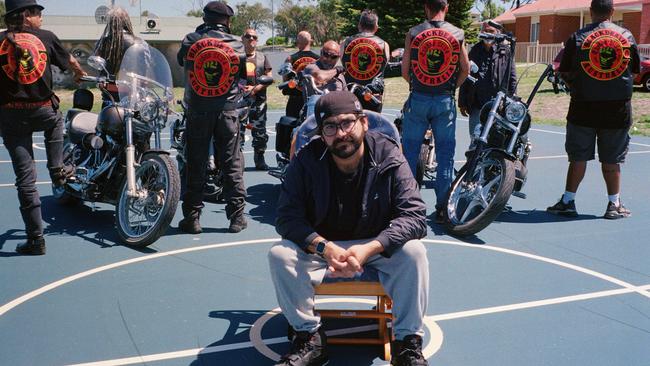
The arrival of Cook in 1770 heralded, Rankine says, a looming catastrophe for Australia’s Indigenous people, paving the way for dispossession and genocide. The fact that Cook’s party fired warning shots at local people before they’d even stepped ashore speaks volumes, he says.
Now, in the 250th anniversary year of Cook’s arrival on the east coast of our continent, Rankine – along with a host of Indigenous singers, songwriters, poets and storytellers – is reframing the Cook story through Aboriginal eyes.
And they’re telling the tale using two methods that have traditionally played very important roles in Indigenous storytelling – humour and music.
Looky Looky Here Comes Cooky, to air on NITV and SBS Viceland on August 20, is hosted by Steven Oliver, an Indigenous comedian and poet perhaps best known for his starring role in the ABC series Black Comedy.
Oliver is outrageously funny at times, before delivering poetry that cuts to the bone. The soundtrack – Rankine’s responsibility – sees Indigenous artists like Mo’Ju, Alice Skye, Kev Carmody and more tell important stories through the medium of music. A songline for the 21st century.
Using comedy and music to convey these sometimes hard-to-hear stories is no accident Rankine says. It’s the Blackfella way.
“Humour is one of our strongest tools,” he says. “You won’t go to too many funerals where people are cracking jokes, but we will do that. It’s a way to get past the obstacles and challenges put in front of us. Humour is one of the most important factors to our resilience.”
`
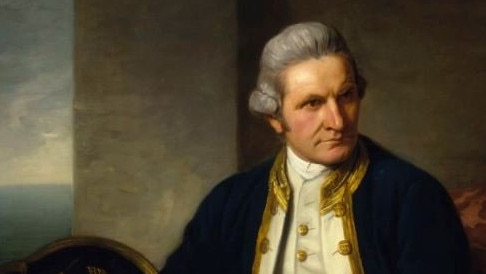
It’s a sleight-of-hand trick that Rankine perfected through the deeply political hip hop he created with collaborator Briggs in the rap outfit AB Original. Give people a slamming beat and a catchy chorus and they’ll be far more likely to take notice of your message. “When you have someone like Steven presenting, you can shave off the edges a little bit,” he says.
“It’s important if you’re going to have that crossover conversation. You need to be able to lure people into a lighthearted conversation, but then when you have the facts presented to you, you can’t deny how important it is.
“And when you make something like (AB Original protest anthem) January 26, the goal was specifically to get it played on the radio.
“So I purposely wrote a bouncy beat, and we wrote an upbeat chorus. Then once you catch a bar or two you’ll be like ‘Oh, wow’. Then you’ll hear the story.
“I’m aware of the power of music. I’ve been in the industry and writing songs for quite some time now, and I’ve seen music do things for the better. And it’s one of those things that lets you sneak into an area where you might not normally be allowed in.”
It’s all part, Rankine says, of having a national conversation. A national conversation about Cook and settlement, about what that meant to Indigenous people, and about where we should go from here.
It’s a conversation he says we’re getting better at having as a nation, but he thinks there’s still a ways to go.
“The Cook statues, the textbooks, the cafes and sandwiches (you have to watch the film, which features a scene of Oliver eating a Cook-themed steak sandwich at the Cook Hotel) – they’re all part of creating the myth of a person who did nothing but right,” Rankine says.
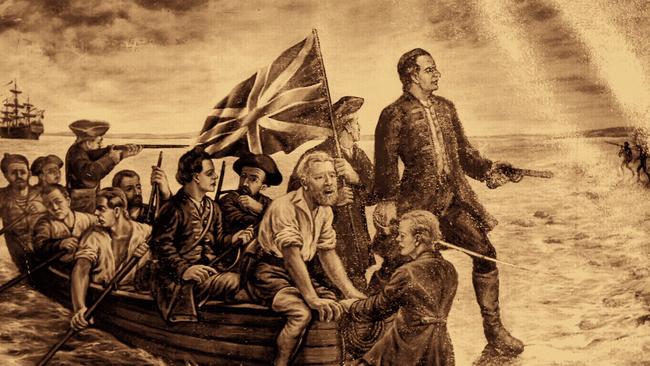
“But you can prop him up and build statues to him or whatever, but he’s still seen by a lot of us as the linchpin for colonisation, disease, outright theft of the land and the beginning of an attempted genocide. We wanted to reimagine that narrative, and also present people with the cold, hard truth.”
There are parts of Looky Looky that some people might find confronting, Rankine admits, but he implores them to take some time to consider the history from the perspective of those who were already here when Cook raised the Union Jack.
“As I say in the film, you can’t punch someone in the face and then tell them it doesn’t hurt,” he says.
“You have to be able to sit back and listen to that story, that complaint, and say, ‘Where, as a nation, can we do better?’ People take that the wrong way and say, ‘Well, I didn’t do anything’. Absolutely true, and we’re not saying you did, but we are saying that you do benefit from a structure built on taking away our land. I know that makes people uncomfortable, but how do you think it makes us feel?”
And while Rankine admits that things are getting better when it comes to having tough talks, there is one thing that still makes him bristle – the celebration of our national day on the date Arthur Phillip landed the First Fleet on Australian soil.
“Nothing says ‘you’re subhuman’ to me more than prioritising a public holiday over people,” he says.
“That just makes me do laps! The right to have a sausage sizzle, while denying the humanity of the Aboriginal people to this day!”
A highlight of Looky Looky Here Comes Cooky is a segment where Rankine visits the South Australian Aboriginal community of Raukkan.
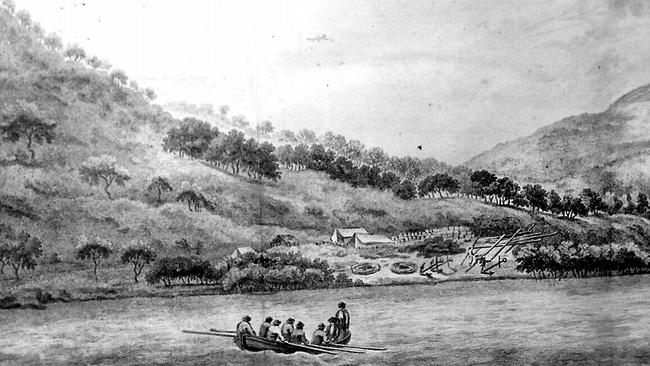
It’s a place where the young Rankine spent a lot of time as a kid, and he admits that he initially had some reservations around bringing cameras into a tight-knit community that meant so much to him. He says those fears melted away after he first met the people he’d be working with.
“Because I trusted everyone involved in the film – I knew everyone was top tier, triple A – and that gave me such a proud feeling to present it in such a way, to make it look the way it should look,” Rankine says.
“It’s a very small community, and they shot it so beautifully. We needed to show people the beauty that exists there, and it’s not what you might think it is. It’s families, it’s education – it’s one of the only schools that still teaches language. There’s a lot more to Raukkan than just being featured on the $50 note that I really wanted to get people acquainted with.”
On a personal note, Rankine is currently working on his first solo record, which he says should be out later in 2020.
“I’d be remiss to give you an actual date,” he laughs.
“But you’ll definitely hear something this year.”
And, like everything Rankine’s been involved with throughout his musical career, it’ll be a message for the kids.
“I’ve always aimed my music at the youth, because change doesn’t come from complacent people,” he says.
“I’m not trying to talk to grown adults at this point. We’re talking to the kids.”
Looky Looky Here Comes Cooky is simulcast on NITV and SBS VICELAND on Thursday,
August 20, at 8.30pm.

